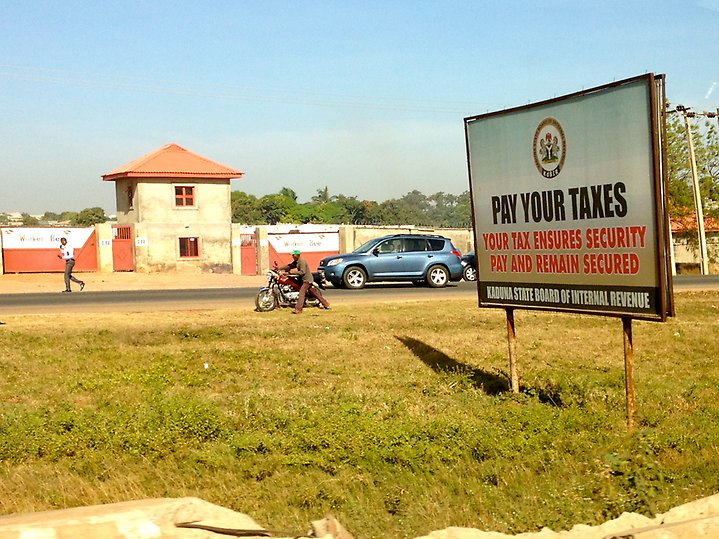Workshop
Taxation for Inclusive Development

Billboard from Kakuri, Kaduna ,Nigeria, November 2013. Photo Allan Leonard.
Time • 7 Nov 2019 09:00 - 8 Nov 2019 18:00
Place • The Nordic Africa Institute, Villavägen 6, Uppsala, Sweden
The deadline for abstracts/papers was 19 Jun 2019
Taxation is a key component in the state-building process, and this workshop will provide field-based research and discussion on how taxation can contribute to inclusive development.
While the focus is on taxation, the workshop will indirectly cover such broad themes as state-building, structural transformation, gender and inclusiveness. The workshop is organised around the following themes:
- Conceptual and theoretical issues: tax designs and inclusive development
- Comparative policies and practices on why people pay taxes
- Historical and social perspectives on taxation in sub-Saharan Africa
- Taxation and greening the economy
- Demographics and inter-generational dimensions of taxation/gender issues
- Taxation and wealth redistribution
- Country case studies.
